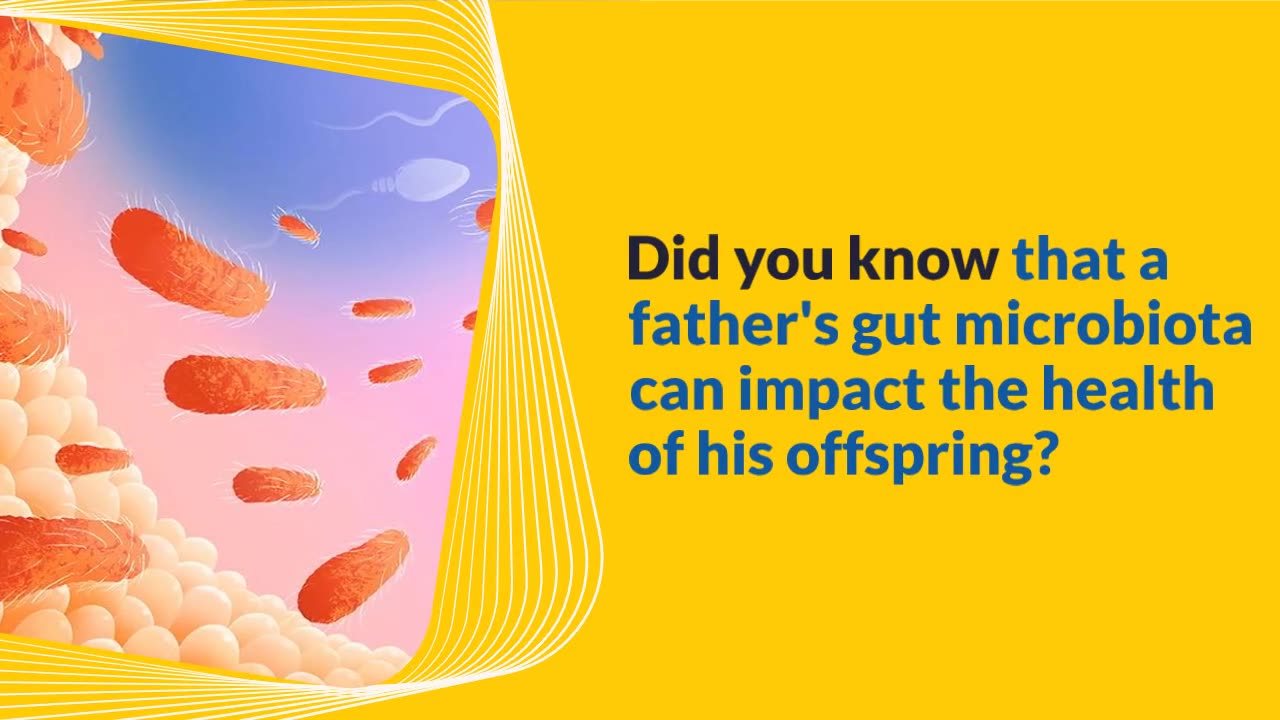Premium Only Content

Father’s Gut Microbiota: The Hidden Key to Offspring Health
Research conducted by the Hackett group at the European Molecular Biology Laboratory (EMBL) in Rome indicates that altering the gut microbiome of male mice elevates the likelihood of disease in their subsequent generations.
Research led by the Hackett group at EMBL revealed that disrupting the gut microbiota in male mice affects their offspring, resulting in lower birth weights and higher mortality rates. This intergenerational impact is mediated through a newly identified ‘gut-germline axis,’ affecting hormonal signaling and testicular physiology, but these effects are reversible once normal microbiota is restored.
The gut microbiota is a community of microorganisms residing in the gastrointestinal tract. It plays a key role in producing enzymes, metabolites, and other molecules essential for host metabolism and environmental responses.
Consequently, a balanced gut microbiota is important for mammalian health in many ways, such as helping to regulate the immune and endocrine systems. This, in turn, impacts the physiology of tissues throughout the body. However, little was known about the impact of the gut microbiota on host reproduction, and whether an altered microbiota in a father could influence the fitness of his offspring.
-
 3:59:45
3:59:45
Bitcoin Sports Network
7 hours agoMax & Stacy Invitational Day 2 Part 1 - LIVE from El Salvador
93.5K10 -
 1:34:30
1:34:30
The Criminal Connection Podcast
5 days ago $1.93 earnedEL PACO: Gypsy Family Wars, Bare Knuckle Boxing, Assassinations and Spirits!
37.3K3 -
 51:43
51:43
Brewzle
1 day agoI Found Some AWESOME Stores Bourbon Hunting in Des Moines, IA
35.2K2 -
 1:16:54
1:16:54
Kyle Rittenhouse Presents: Tactically Inappropriate
1 day ago $2.52 earnedReplacing Matt Gaetz Pt. 2
20.3K12 -
 16:08
16:08
inspirePlay
1 day ago $0.70 earnedCan You Sniff Out the Golf Imposters Before They Wreck the Score?
16.9K3 -
 22:57
22:57
RTT: Guns & Gear
22 hours ago $4.52 earnedPSA Dagger vs. Bear Creek Arsenal BC-102 | The Better Pistol For The Poors
42.7K10 -
 8:28
8:28
MichaelBisping
8 hours agoBISPING: "Islam WILL RETIRE after UFC 311!?" | Makhachev Wants Belal or Shavkat at WELTERWEIGHT
24.8K4 -
 1:13:55
1:13:55
Eye of the STORM
4 months agoEye of the STORM Podcast S2 E3 08/19/24 with Sam Anthony
18.3K1 -
 1:04:22
1:04:22
PMG
5 hours ago $0.42 earned"Your Marriage Can Be Saved with Art Thomas"
14.6K2 -
 59:14
59:14
Tactical Advisor
8 hours agoNew Gun Build / Fires update | Vault Room Live Stream 013
45.2K9